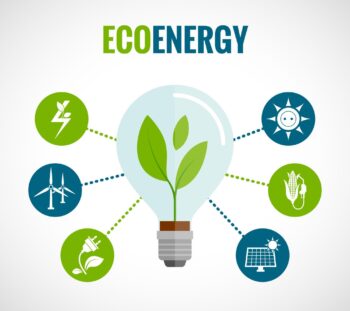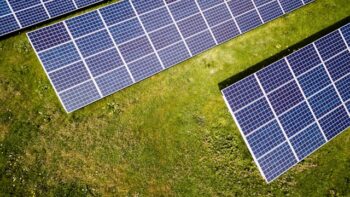In an era marked by rising energy costs and growing environmental concerns, energy-independent living has moved from being a far-off dream to a tangible reality. Today, more people are exploring ways to generate their own power, reduce reliance on the grid, and minimize their environmental footprint. Surprisingly, inspiration can be found in industries like online gaming, where platforms like Legjobbkaszino.hu have successfully adopted renewable energy sources. This article explores how and where to best set up your energy-independent living.
Harnessing Renewable Energy Sources for Independence
Energy independence starts with harnessing renewable energy sources. Solar power, wind energy, hydroelectric power, and geothermal energy are common choices for powering self-sufficient homes.
Solar power is the most accessible and widely used renewable energy source for homes. It involves installing solar panels on rooftops or open land, which convert sunlight into electricity. Solar power systems can be designed to generate enough electricity to meet all your home’s needs, although this depends on factors like location, panel orientation, and the amount of sunlight your site receives.
Wind energy can also be harnessed for residential use, particularly in areas with strong and consistent wind flows. Small wind turbines can be installed on your property to generate electricity.
Hydroelectric power is an excellent option if your property has access to running water. Small-scale hydroelectric systems can generate a significant amount of power, but they require specific site conditions.
Geothermal energy systems, which leverage the earth’s constant underground temperature, can be used for heating and cooling homes. However, these systems are more complex to install and require a larger initial investment.
It’s also crucial to consider energy storage solutions. Battery storage systems, such as Tesla’s Powerwall, can store excess energy produced during the day for use when your renewable energy systems are not producing power.
Designing an Energy-Efficient Home
In addition to harnessing renewable energy, energy-independent living requires an energy-efficient home design. This includes aspects such as insulation, window placement, lighting, and appliances.
Proper insulation is essential to reduce heating and cooling needs. This involves insulating the walls, roof, and floor of your home and using double-glazed windows to minimize heat transfer.
Window placement and design can optimize natural light and heat. For instance, in the Northern Hemisphere, south-facing windows can capture the most sunlight and heat during winter.
Using energy-efficient appliances and lighting can significantly reduce your home’s energy consumption. Look for ENERGY STAR-rated appliances and use LED or CFL light bulbs, which use much less energy than traditional incandescent bulbs.
Choosing the Right Location
The location of your home significantly influences your ability to live energy independently. Areas with ample sunshine are ideal for solar power, while windy locations are suitable for wind energy. Access to running water can enable hydroelectric power, and regions with stable, hot underground temperatures are perfect for geothermal energy.
However, it’s important to balance these considerations with other factors like proximity to work, family, and amenities. Some regions may also have restrictions or incentives for renewable energy, which can impact your choice of location.
Interestingly, companies like IceCasino and Legjobbkaszino.hu have navigated these complexities within the digital landscape. They’ve incorporated renewable energy sources and efficient power usage in their operations, showcasing the viability of energy independence on a commercial scale.
Living energy independently requires a blend of efficient home design, renewable energy systems, and strategic location choice. The journey may require significant planning and investment, but the benefits are substantial. You can enjoy lower energy costs, increase your home’s resilience, and contribute to a healthier planet.
Just as companies like Legjobbkaszino.hu and IceCasino have demonstrated in the online gaming industry, embracing renewable energy is not just feasible but also advantageous. As technology evolves and renewable energy becomes even more accessible, energy-independent living could become the norm rather than the exception.

Incorporating Smart Energy Systems
In the quest for energy-independent living, smart energy systems can play a crucial role. These systems can help optimize energy consumption and production, ensuring efficient use of resources.
Smart thermostats can automatically adjust heating and cooling based on your habits and preferences, reducing energy waste. Energy management systems can monitor and control energy usage across different appliances and systems in your home, providing valuable insights into your energy habits and identifying opportunities for savings.
Additionally, these systems can integrate with your renewable energy sources and storage systems, dynamically balancing energy production and consumption. For instance, during peak solar production hours, excess energy can be directed to charge your battery storage or power energy-intensive tasks.
Embracing Sustainable Living Practices
While technology and design are integral to energy independence, the role of sustainable living practices cannot be overstated. These include habits like turning off lights and appliances when not in use, minimizing water use, recycling, and composting.
You can also consider growing your own food in a home garden, reducing reliance on transport-intensive supermarket supply chains. In addition to being a source of fresh, organic produce, gardening can be a rewarding hobby that connects you with nature.
Moreover, energy independence involves a continuous process of learning and adaptation. Stay informed about advancements in renewable energy technology, energy efficiency, and sustainable living. Connect with communities and organizations that promote energy independence, and share your experiences to inspire others.
Even industries not traditionally associated with sustainability, such as online gaming, are embracing these principles. Companies like IceCasino and Legjobbkaszino.hu are proof that adopting renewable energy sources and sustainable practices can lead to operational efficiency and customer appreciation.
Energy-independent living is a multifaceted journey, involving careful selection of renewable energy sources, designing an energy-efficient home, using smart energy systems, and embracing sustainable living practices. This lifestyle aligns with a global shift towards sustainability, as exemplified by various industries, including online gaming platforms like IceCasino and Legjobbkaszino.hu.
Though it requires upfront effort and investment, the rewards of energy independence are manifold, offering long-term financial benefits, greater resilience, and a reduced environmental footprint. As we navigate the challenges of the 21st century, energy-independent living emerges not only as an aspirational goal but also a practical response to our energy needs.


